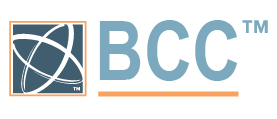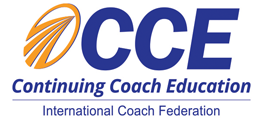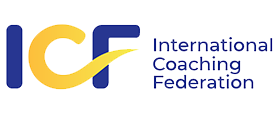Are you looking to distinguish yourself from other career coaches and establish professional credibility with BCC certification? The NACE Coaching Certification Program (CCP) fulfills the required prerequisites and prepares you for the BCC Exam with our exclusive 30- and 60-Hour Coaching Certification Program.
New this year: Our professional coaching certification program has been entirely redesigned to comply with the latest requirements set forth by the ICF so you can pursue your coaching credential with confidence.

Choose from flexible programming that fits your organization's needs with both on-demand and on-site coaching certification program modules. Individual and group trainings are available (group discounts too!).

NACE strives to stay at the forefront of career coaching standards and credentialing. We’re proud to announce our newly revised training content and exam — now updated to meet the demands of an ever-changing landscape.

Take advantage of our discount when you train with a group! To discuss a custom program for multiple participants, contact Amanda Vaughn, Coaching & Accreditation Specialist, at avaughn@naceweb.org, 610.625.1035.
Have questions or want to get started? Our meeting and events team is waiting to kick off your training program!
The NACE Coaching Certification Program (CCP) is a training program designed for career services members wishing to demonstrate their success as a career coach using proven ethical and professional standards in their pursuit of the Board-Certified Coach (BCC) credential offered through the Center for Credentialing & Education, Inc. (CCE).
The BCC credential is a mark of distinction for credential holders and a source of credibility for their clients. A BCC has met professional coaching competency standards established by CCE and subject matter experts.
The BCC certification demonstrates to the public that a professional coach has:
The achievement of the BCC credential solidifies the professional identity of the coach. The BCC credential is attractive to professionals who would like to provide independent third-party verification that they have achieved certain coaching competency standards.




Learn the importance of building a relationship of trust in the coaching partnership. Explore commitment and confidentiality as well as gain an understanding of ethics and responsibility of the coaching practice.

Master the use of visual thinking in coaching to help the coachee organize their thoughts and improve their ability to think and communicate. Through creative activity, participants will learn ways to visualize abstract thoughts into tangible concepts.

Explore how to conduct effective, ethical coaching sessions using strategies and best practices to create an environment that supports mutual respect. Attendees will learn how to use empowerment and positive reinforcement to create a coaching alliance.

Examine appropriate reinforcement techniques throughout the helping process during this onsite workshop. Topics also include nonjudgmental approaches in the coaching process, modeling acceptance, facilitating openness, and more.

Review how assessments are used in the coaching process and the applicability of assessments to the coachee. By understanding assessments, coaches will gain in-depth knowledge and a better understanding of their clients.

Determine effective coaching techniques to use with both groups and individuals in this two-day program that's conducted onsite at your organization. Engage in this robust learning experience through facilitated discussion, guided activities, and group work.

Immerse yourself in the basics of coaching: overarching responsibilities, important skills required, the coaching process, and the ethics of coaching.

Learn the basic fundamentals of coaching: how to set goals, how to frame questions, the art of acute listening, and ways to assess progress.

Increase your knowledge of assessments and their role in coaching. Discuss various things that can impact coaching, how to evaluate the coach environment, and factors that affect the decision-making process.

Study the concept of unconscious bias in detail, and then examine the role this concept can play within the coaching process.

Examine ethical guidelines and explore scenarios where ethical considerations occur. Through facilitated conversation, coaches will examine standards for professional coaching, strategies for managing client/coach relationships, and avenues for continued development.

Take a deep dive into the essential communication skills needed to initiate a coaching plan during this three-part webinar series. Attendees will learn how to question for understanding and listen for meaning in order to identify factors impacting the coaching plan.
NACE and its testing vendor comply with the provisions of the Americans with Disabilities Act (ADA) and Title VII of the Civil Rights Act in accommodating disabled candidates who require special accommodations to complete assessment. Candidates requiring special accommodations must notify NACE of their request prior to testing via the form provided below. There are no fees associated with accommodation requests.
Contact Amanda Vaughn, Coaching & Accreditation Specialist, at avaughn@naceweb.org, 610.625.1035.